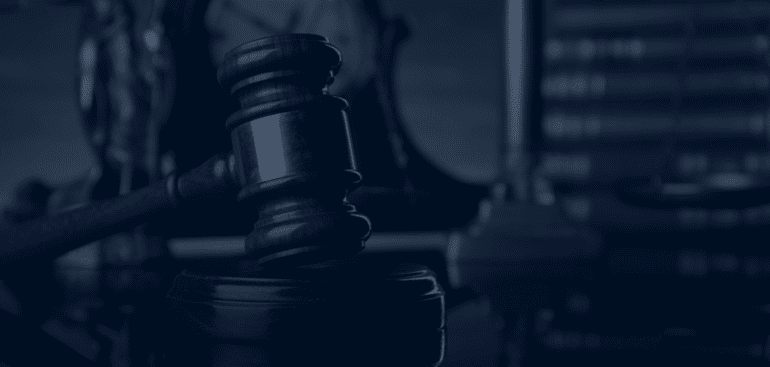Most Trusted & Transparent Civil Litigation Lawyer In Mississauga
Getting Out of the Legal Blues: Dealing with Civil Litigation Lawyers in Mississauga.
Getting ensnared in the legal blues of civil litigation is enough to sour anyone’s spirits. Whether you’re a business owner or an individual, finding yourself at odds with an unexpected court case can strike fear into even the bravest heart. But there’s no need to despair – if you’re facing civil litigation in Mississauga or anywhere in Ontario, there are steps you can take to protect your rights and reach a more satisfactory resolution.
In this blog post, we’ll discuss everything from understanding the basics of civil litigation processes to taking proactive measures for reducing and mitigating your risk of legal strife. So get out of those grey doldrums and arm yourself with knowledge – let’s dive right into dealing with civil litigation!
1. Introduction to Civil Litigation - What it is and Why it Matters
Civil litigation is a part of the legal system that deals with disputes between two or more parties that usually result in financial compensation. Civil suits are initiated when someone feels their rights have been violated or they have suffered damages due to the actions of another person or entity. These cases can range from contract disputes to wrongful termination, personal injury, and property damage.
Civil litigation matters because it provides individuals and businesses with a way to seek justice if their rights have been violated. It also serves as an important check on the power of companies, governments, and other entities. It helps ensure that people are held accountable for any wrongdoing or negligence they may have committed. Finally, civil litigation can help resolve disputes without resorting to violence or extrajudicial means of settling issues.
2. Understanding the Basics of Civil Litigation Processes in Mississauga
This is the first step in the civil litigation process. One party initiates legal action against another by filing a complaint or initiating an arbitration proceeding in Ontario. This document outlines the basis for the dispute as well as the damages sought.
After a complaint has been filed, the defendant has 21 days to file a response. This response can contest the allegations or admit fault.
Other parties may also join in on the proceedings before it moves forward to discovery, if necessary. This could include any parties that may be affected by the outcome of the case or have relevant information.
During this stage, both sides are able to gather evidence and information relevant to their case through interrogatories, depositions, or requests for documents or admissions of fact.
Once discovery concludes, there will be a pre-trial conference where both sides discuss key issues in order to avoid going to trial if possible. This is done in order to narrow down the issues and avoid unnecessary costs.
If no resolution is reached at the pre-trial conference, then there will be a trial where each side presents its arguments in court before a judge and/or jury. Depending on the complexity of the case, this process can take anywhere from months to years.
A final verdict is reached after the trial process is over and the judge or jury has considered all evidence presented.

3. How to Prepare for Potential Civil Litigation
When preparing for potential civil litigation, it is important to take certain steps in order to ensure that you are as prepared as possible. These steps include consulting with experienced legal professionals, who can provide guidance on the best course of action; gathering any relevant evidence or documents related to the dispute at hand; monitoring all communications between all parties involved in the dispute; understanding applicable laws and regulations which could impact the outcome of the case; being equipped to engage in alternative dispute resolution measures, such as mediation or arbitration; and being willing to compromise if necessary.
It is also important to be proactive and thorough when preparing for a potential civil trial. This means doing research into similar cases that have gone before, so you can learn from their outcomes and be better prepared for your own situation. It involves creating detailed notes about your case based on all evidence collected thus far so that any legal team working on your behalf has an easy reference point when needed. Additionally, it’s important to compile all necessary documents beforehand—such as contracts, emails, photographs, or witness testimonies—so they are readily available once the trial begins.
By taking these steps early on in the process of potential litigation, you will be well-prepared should the case proceed past the initial stages. Having a clear understanding of your case and its particulars will make it easier for any legal representation you may acquire in the future, potentially saving you time and money down the line. Additionally, having knowledge of relevant laws and regulations pertaining to your particular dispute can give you an edge when negotiations begin over how to proceed with a potential trial—which could lead to a positive resolution without ever entering into a full-blown court proceeding.
4. Mitigating Risk for Business Owners and Individuals
Mitigating risk is an important part of dispute resolution. Business owners can protect their company’s assets in the event of litigation by reviewing insurance policies, instituting non-disclosure agreements and other contractual measures, as well as ensuring that all employment contracts are updated and compliant with current laws.
They should also anticipate potential liabilities or risks associated with how they may be perceived in court if a dispute were to occur. Individuals can limit their exposure to risk by understanding their rights and obligations under the law, being aware of any statute of limitations that apply to their case, seeking advice from experienced attorneys, carefully considering all offers made by opposing parties, and taking proactive steps such as attending mediation or arbitration sessions.
Consider preventative measures such as drafting wills or trusts that include provisions for protecting assets in the event of legal action, and keeping accurate records throughout the process, including dates and details of all communications with other parties as well as copies of important documents relevant to the case. Ultimately, having a comprehensive understanding of one’s rights under the law is key when mitigating risk during a dispute resolution process.
5. Reaching a Satisfactory Resolution through Proper Representation
Proper legal representation is essential in resolving legal disputes by providing assistance in understanding and navigating the legal process, as well as advice on how best to pursue a case. It also helps to ensure that all paperwork is properly filled out and filed correctly, reducing the chance of errors or missed deadlines. Strong legal representation can also help ensure that everyone involved in the dispute understands their rights under the law, leading to a mutually beneficial agreement. To find the best representation, it is important to research potential lawyers’ qualifications, expertise, and history with similar cases as yours.
How we can help as Civil Litigation Lawyers?
Orcus Law LLP offers a complete range of commercial and corporate legal services with quality representation. From small entrepreneurial firms to large private and public companies, our team of dedicated lawyers are focused on representing every type of stakeholder, including buyers, sellers, borrowers, lenders, shareholders, takeover or acquisition targets, receivers, boards and committees, franchisors, distributors, partnerships, and government corporations.
As a transparent and trustworthy law firm, we focus our efforts on delivering results to our clients, and always strive to provide them best possible service. So if you’re in Mississauga, Brampton, Toronto, or anywhere in Ontario, reach out to us using the contact information below. Our Mississauga Civil Litigation Lawyers will take care of the rest.

Our Services
We know life can be stressful at times, especially when you are dealing with a legal issue. Our litigation lawyers in Mississauga can make the legal process as easy and as clear for you. We provide legal services pertaining to civil litigation, immigration law, family law, real estate law, Business Litigation, Contractual Disputes, Breach of contract, Civil Litigation, criminal defense, Intellectual property, Corporate Litigation, Criminal Law, Mergers / Acquisitions, debt collection, employment law, and Restructuring / Insolvency.

